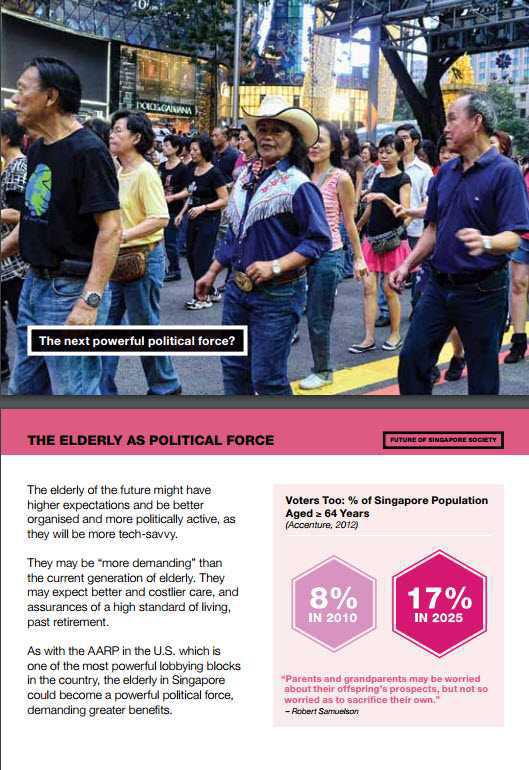The Future Deck cards spark conversations about the emerging challenges and opportunities, in this case in Singapore
Benefits & Problems Addressed
Conversation sparks: Cards are a good, low cost way to spark conversations, particularly in small groups
Homework: Developing a card game addressing the future forces everyone to do research.
Updatable: card sets can be easily updated
Tips & Techniques
Using the Cards: The deck can be used in workshops to prioritize issues for further research, to examine the impact of the issues on public policy, and to craft scenario narratives about the future.
Deck Topics & Example Cards - The cards give brief information on changes underway, backed by statistics
Future of Society: Religious diversity, gender equality, new models of parenthood, the elderly as political force
Technology & Society: Crowdsourcing 2.0, enhancing our brains,
The Future of Work: Automating high-end jobs, democratization of education, loss of middle skill jobs, internships for mid-career professionals
Drivers of Growth: Second-tier cities, the return of manufacturing, 3-D-printing, energy abundance, collaborative consumption
Macro-Economic Shifts: Loss of "safe" assets, disintermediation of banking, capital controls gain respectability
Future of Sustainability: green accounting, de-urbanization, future of food, zero-waste,
Citizenship & Governance: If mayors ruled the world, multiple citizenship, more rights to diasporas,
International Landscape: Chine-oriented global elite, non-politicians winning elections, data analytics & political risk,
Future of Conflict: age of robotic warfare, open-source military technology, turning our networks against us
Customizing: While the cards address specific challenges in Singapore, any community can develop cards to address impactful trends.
Future Deck Cards - The Centre for Strategic Futures Singapore
ARUP

